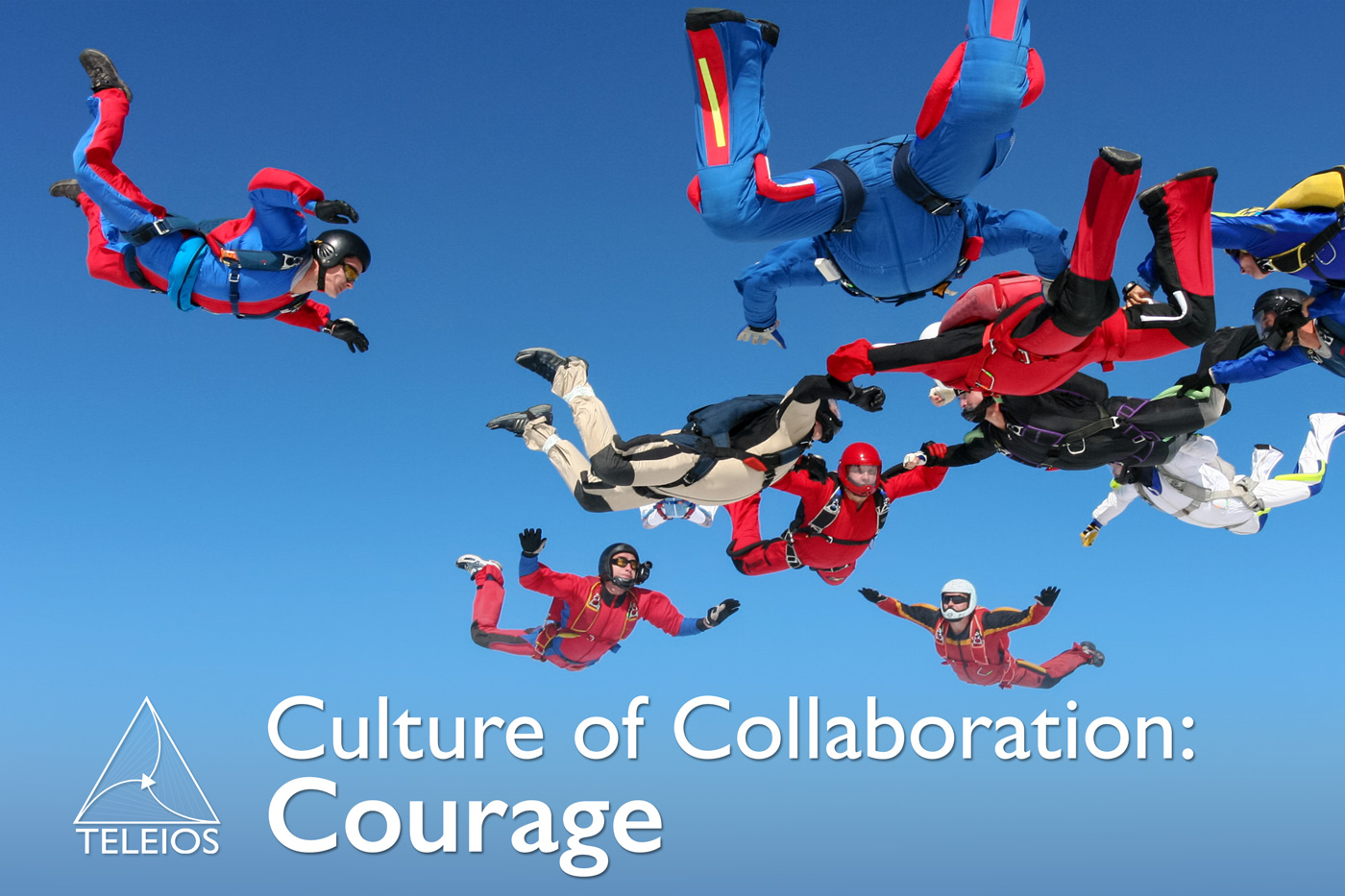Step 3: STOP the Chatter and START the Courage. This is the third and final installment of our blog series. The first two installments: 1- Culture of Collaboration and 2- Culture of Collaboration: Moving Forward.
Challenge yourself to courageously ask questions from a place of care and openness. Be intentional with your questions. Be intentional with who you ask the questions to and how you ask them. We come from different backgrounds and therefore have different frames of reference, likewise we draw from various contexts when forming opinions and decisions and so perceptions will vary. Allowing chatter or gossip is not productive and should be stopped, if you want to build and promote trust. People have feelings and those feelings should be valued, likewise people have thoughts and those thoughts should be respected, however; courage to live from a place of care and a place of openness is necessary.
Values of an organization are imperative to contributing to the mission. If chatter and gossip are allowed instead of courageous collaborations exhibiting values, erosion of trust can occur. It can be dangerous to draw a conclusion without thoughtful collaborations, exercising curiosity through learning, and courage through question-asking. Every individual holds an important role in building organizational culture, if one individual decides to deviate from the values of the organization just think what that does to others around them and to the mission of the organization.
When was the last time you had a courageous conversation with the appropriate person instead of sharing with the wrong person through gossip or chatter? I often remind myself, if I want to be respected, I need to do the same for others. Sharing a question, challenge, or even concern directly with the person it involves is respectful, whereas, talking about them or the situation with anyone outside of the right person or a trusted mentor is not only disrespectful but it reduces trust.
Cultures of collaboration build trust, foster relationships, and promote growth. Cultures of collaboration allow for learning, strengthen competence, and enhance communications. What type of culture do you want to have?
“If you want to know what kind of organization you deserve, look at the one you’ve got” Dr. Lee Thayer
How are you willing to own your role, advance your own thinking, and be relentlessly dedicated to living your organization’s values? What will you make possible by collaborating more starting today? Endless possibilities await when you choose to live from a place of gratitude, respect, and integrity; those are central to collaboration.
Ed.D, MBA, MLAS, SPHR®, SHRM-SCP
Human Resources Coach, TCN and Teleios University Professor


Teleios University (TU)
Discover More
Register Today!
We invite you to listen to TCNtalks

An organizational model that allows nonprofit hospices (Members) to leverage best practices, achieve economies of scale and collaborate
in ways that better prepare each agency to participate
in emerging alternative payment models
and advance their charitable missions.





